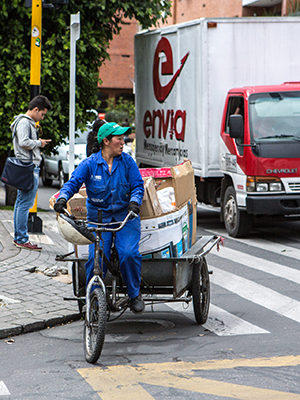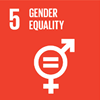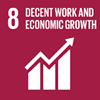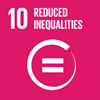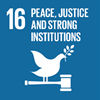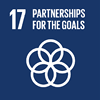Transforming economies, states, and societies
At its core, development is about the well-being of people. But it is also about creating societies which provide fundamental rights and just social political outcomes. Sustainable and inclusive development requires transformative changes across three fundamental areas: in the structures of economies, in the state, and institutions that govern social and market interactions and broader developmental processes, and in society itself. These transformations are central to the achievement of the United Nations’ 2030 Agenda for Sustainable Development and the Sustainable Development Goals (SDGs).
The 2019–23 UNU-WIDER work programme focuses on the interlinked development challenges of transforming economies, states, and societies and maps them against SDGs 5, 8, 10, 16, 17. By mobilizing research evidence for action through the ongoing processes in the UN and its member states, the institute continues to work with stakeholders to strengthen capacities for research, technical, and policy analysis, and facilitate exchange of experiences and knowledge towards bold and collaborative development solutions for countries and regions around the world.
Click on the table below to explore our current work or scroll down to search past projects.
20 active and previous projects
Filter by...
2008-09
African development - myths and realitiesExisting research on Africa has produced a seemingly endless list of reasons why African growth and poverty reduction record has lagged behind that of other regions of the developing world. This project looks at the reasons put forward for Africa’s...
2008-09
Frontiers of poverty analysisThe aim of this project is to take stock of the often overlooked options now available to researchers at the frontiers of poverty analysis and to illustrate their use in developing country contexts. The main project activity will be an international...
2008-09
Development in an urban worldIn 2007 the number of urban inhabitants will surpass rural dwellers as a percentage of the total world population. By 2030 the proportion of people living in cities globally is expected to reach 61%, with almost 80% of urban dwellers living in less...
2008-09
Promoting entrepreneurial capacityEntrepreneurship can play an important role in structural economic change and in improving wellbeing. Governments and international institutions are investing increasing resources to promote entrepreneurship. This project aims at a greater...
2008-09
Role of elites in economic developmentTheir influence of elites in politics, government, business, and the media profoundly influences the direction of economic and social activities. In some countries, the preferences of elites are closely aligned with the national interest. Elsewhere...
2008-09
Reflections on transition - twenty years after the fall of the Berlin wallThe fall of the Berlin Wall in November 1989 was a defining moment in the transition of former socialist countries into market economies. To mark the twentieth anniversary of this historic event, UNU-WIDER is organising a two-day conference to review...
2000-01
Refugees, international migration and povertyFleeing poverty, violence and 'ethnic cleansing' millions of people leave their homes every year in search of safety and economic opportunities. In contrast to the migrations of the nineteenth century today's migrations often take place through...
2000-01
Growth and poverty conferenceConferences: 25 May 2001 WIDER Development Conference on Growth and Poverty
2000-01
Debt relief conferenceConferences: 17 August 2001 WIDER Development Conference on Debt Relief
2000-01
Globalization and the obstacles to the successful integration of small vulnerable economiesA key challenge for policy makers is how to bring about the successful integration of the less developed countries into the international system. Many of the obstacles to the meaningful participation of vulnerable developing economies in the...
2000-01
Insurance against povertyHouseholds in developing countries face many risks. Informal insurance mechanisms (marriage, the extended family, and investment in social capital) provide some protection but are weak in the face of major calamities that affect households en masse...
2000-01
Micro-simulation of tax benefit reforms in russiaMicro-simulation models play an important role in policy analysis in developed economies, particularly in connection with the distributional impact of tax and benefit reforms. The objective is to show how the changes affect different households in...
2000-01
The impact of privatization and regulation of utilities and social services in Latin AmericaLatin America has now privatised a large number of utilities (water, electricity, transport, and telecommunications) and now makes more use of market approaches to delivery in the social sectors (education and health). Privatisation has major...
2000-01
Information technology and global economic developmentProject Meetings: 12 January 2001 Project meeting: The New Economy in a Global Perspective Conferences: 10 May 2002 WIDER Development Conference on New Economy in Development
2000-01
Capital flows to developing countries since the Asian crisis - how to manage their volatility?The project intends to fill the gaps in knowledge in two related areas: 1) what determines decisions by lenders/investors to enter or withdraw from individual developing countries? 2) what are the policy implications for macroeconomic and financial...
 Join the network
Join the network